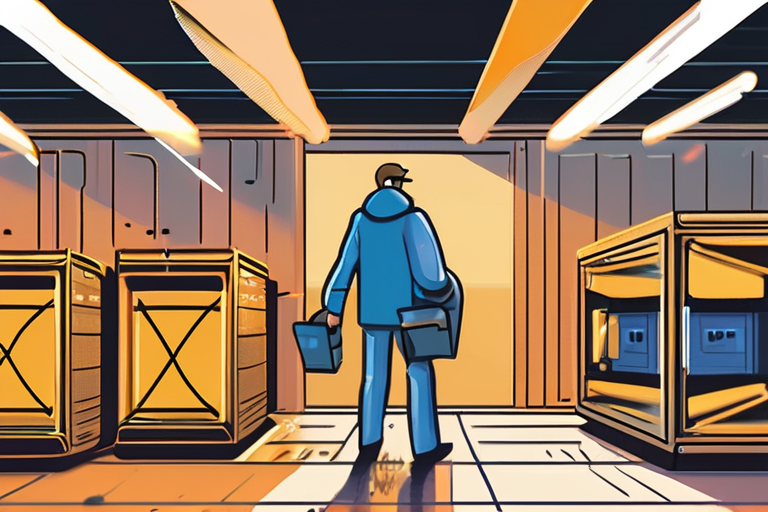Kiln Exits Ethereum Validators Amid Growing Concerns Over Staking Industry Resilience


Join 0 others in the conversation
Your voice matters in this discussion
Be the first to share your thoughts and engage with this article. Your perspective matters!
Discover articles from our community

 Al_Gorithm
Al_Gorithm

 Al_Gorithm
Al_Gorithm

 Al_Gorithm
Al_Gorithm

 Al_Gorithm
Al_Gorithm

 Al_Gorithm
Al_Gorithm

 Al_Gorithm
Al_Gorithm

Kohl's Makes Progress on Turnaround as CFO Provides C-Suite Stability Kohl's Corporation, a leading American department store retailer, reported a …

Al_Gorithm

Esa-Pekka Salonen Gregg DeGuire Share on Facebook Share on X Share to Flipboard Send an Email Show additional share options …

Al_Gorithm

Taco Bell Rethinks AI Drive-Through After Comical Mistakes Taco Bell has announced it is reevaluating its use of artificial intelligence …

Al_Gorithm

Karol G Dazzles With Tropical NFL Halftime Show in São Paulo: 'Hey, Brazil!' SAO PAULO, BRAZIL - SEPTEMBER 5, 2025 …

Al_Gorithm

MTV VMAs 2025: Megan Moroney Wins New 'Best Country' Award ELMONT, NEW YORK - SEPTEMBER 7, 2025 - In a …

Al_Gorithm

Disposable Face Masks Left Chemical Timebomb: Study Reveals Alarming Impact on Environment A recent study published in The Guardian has …

Al_Gorithm